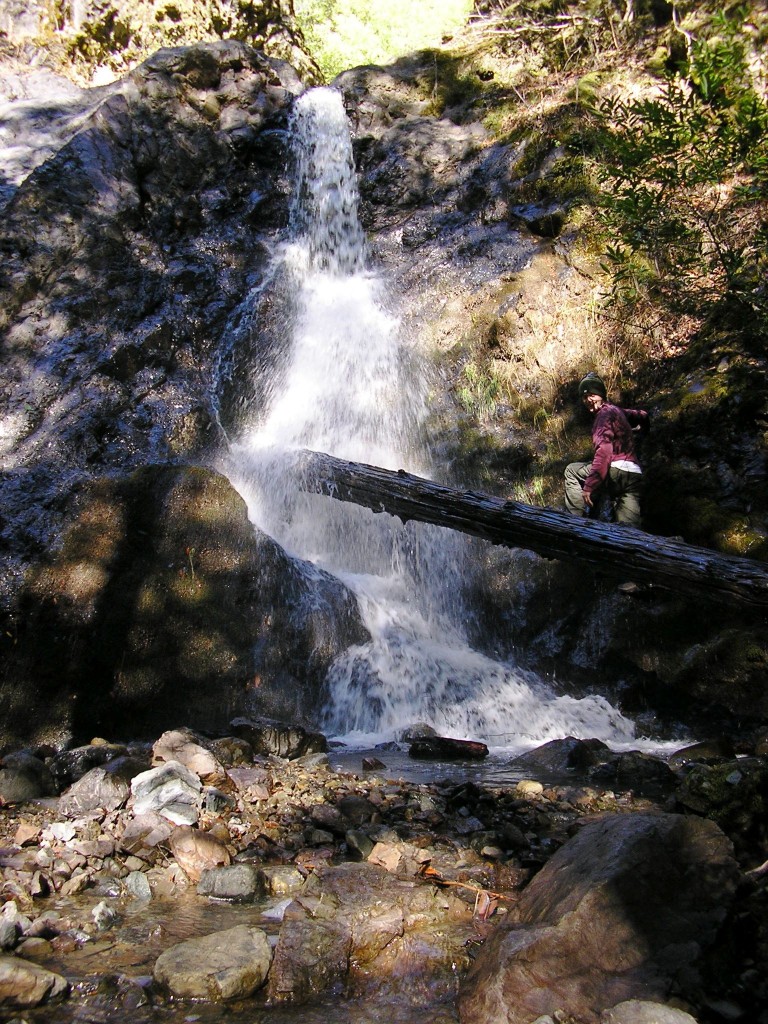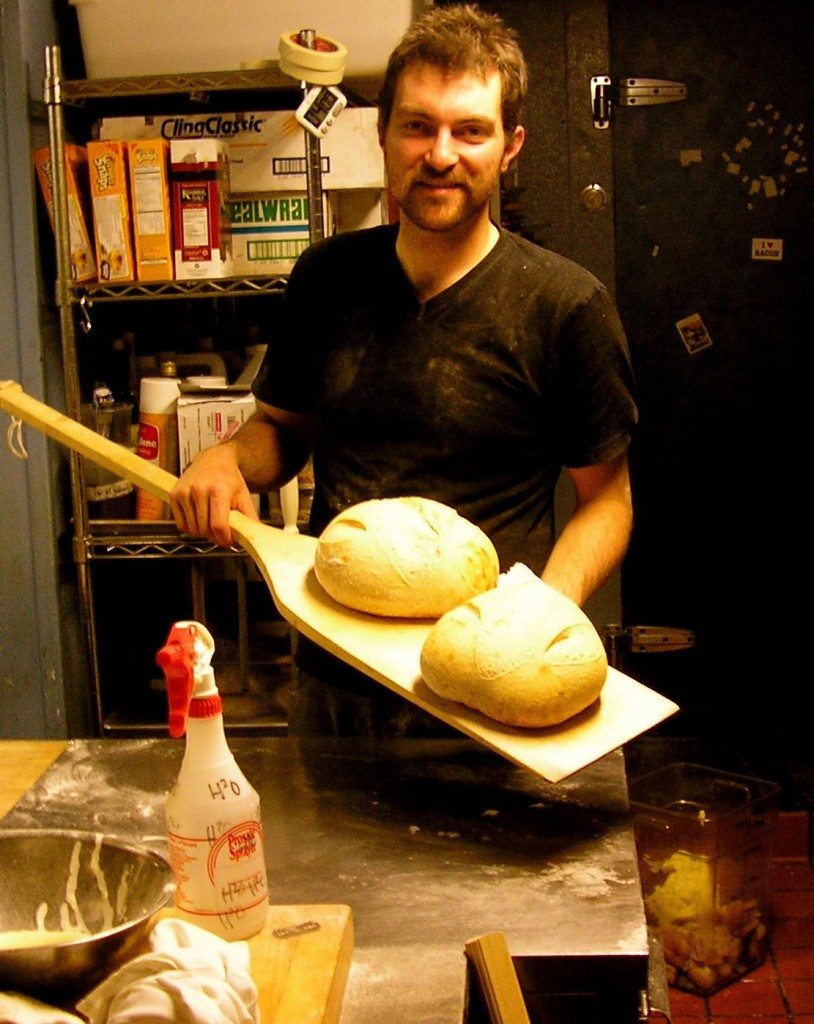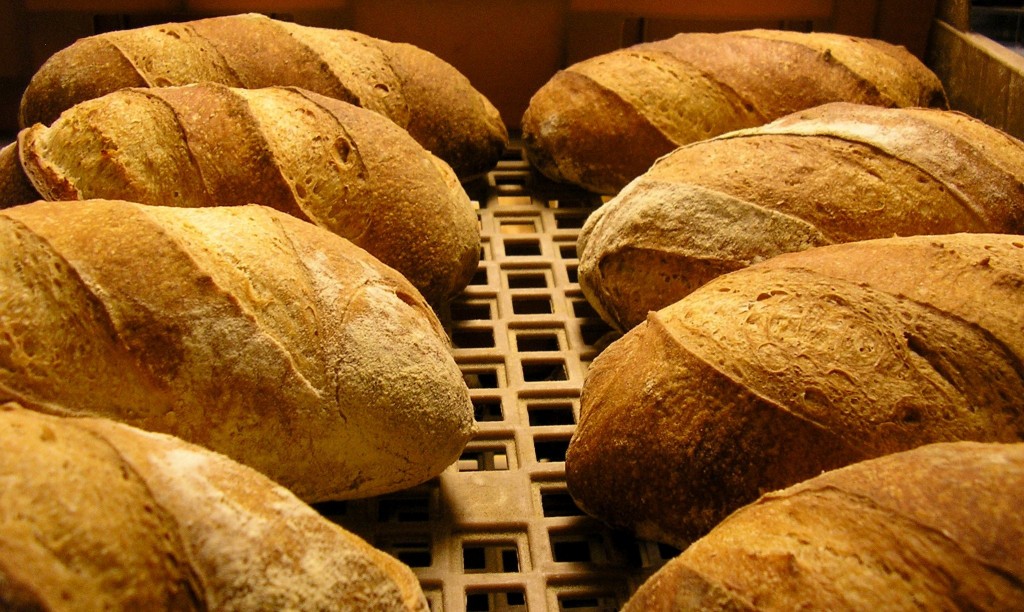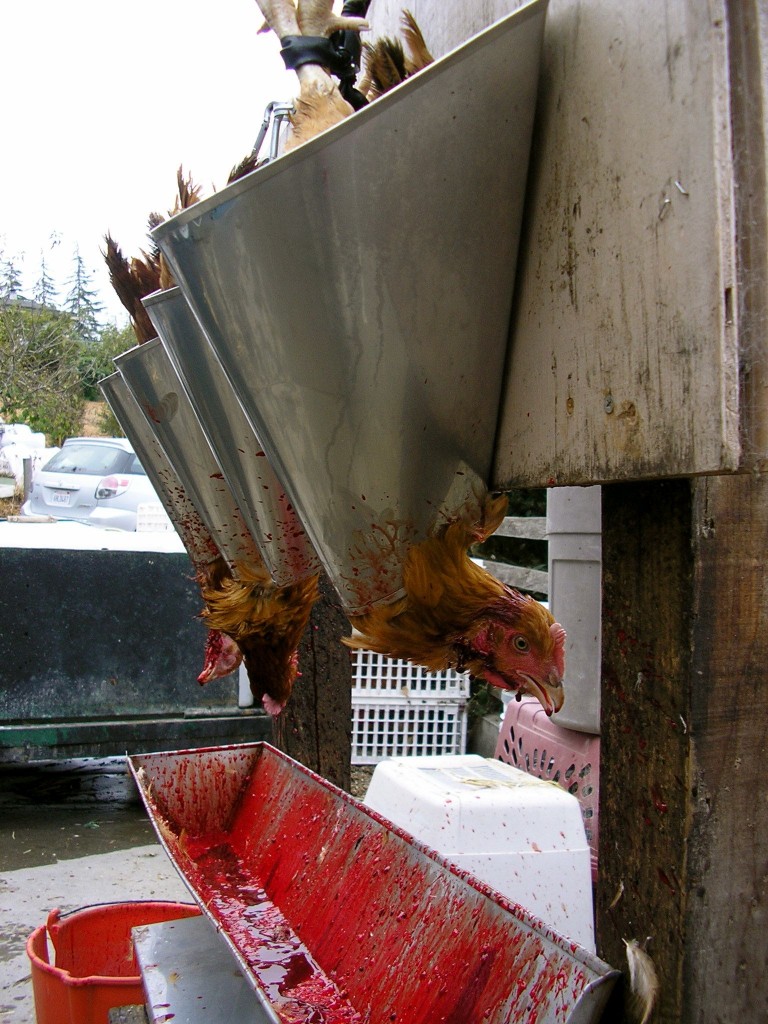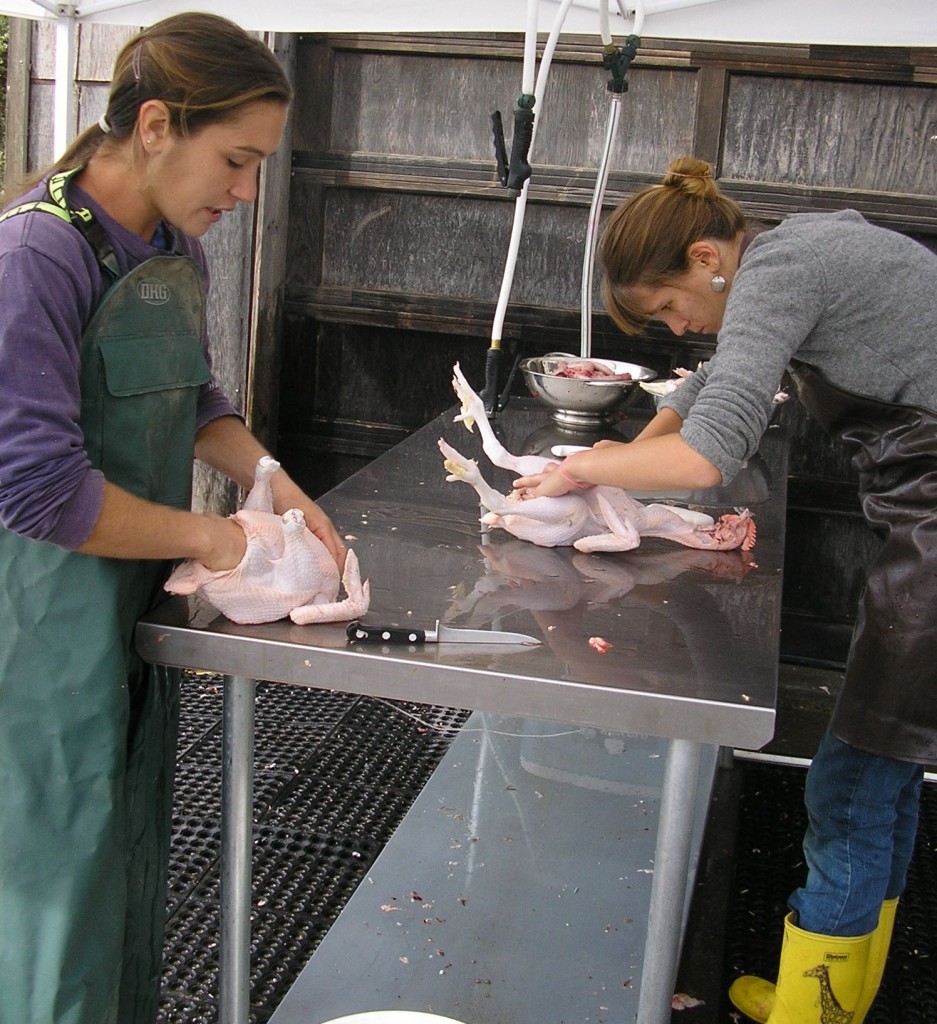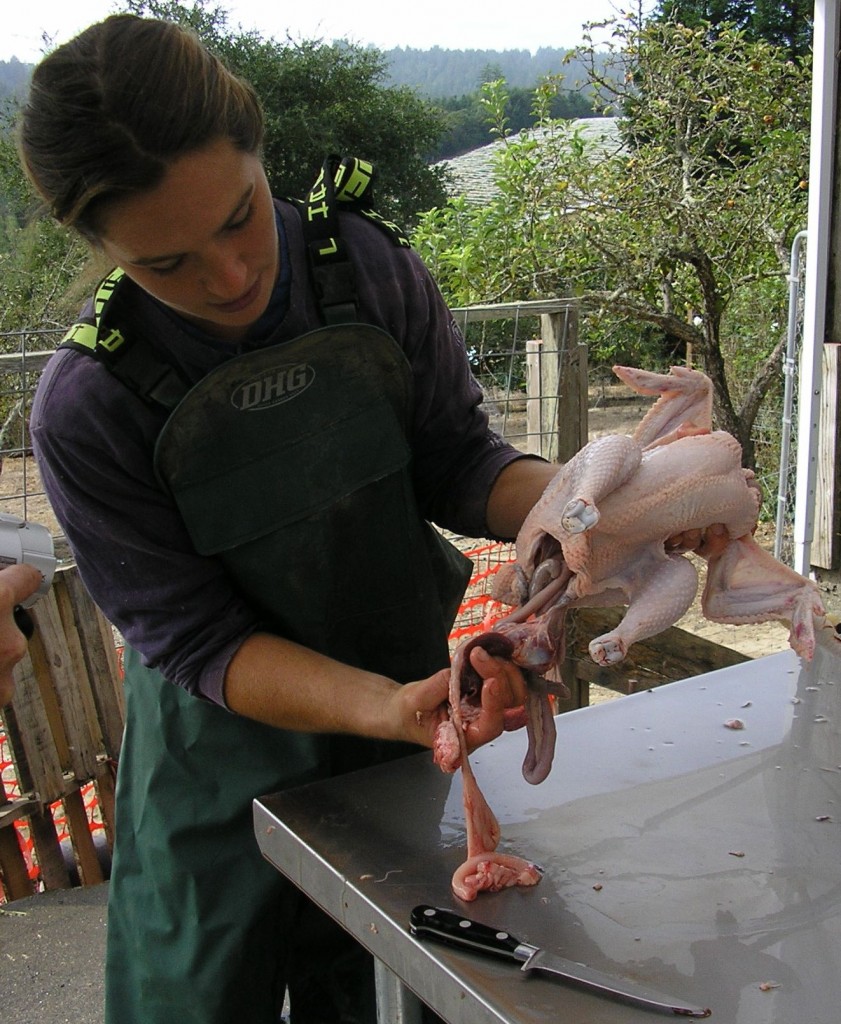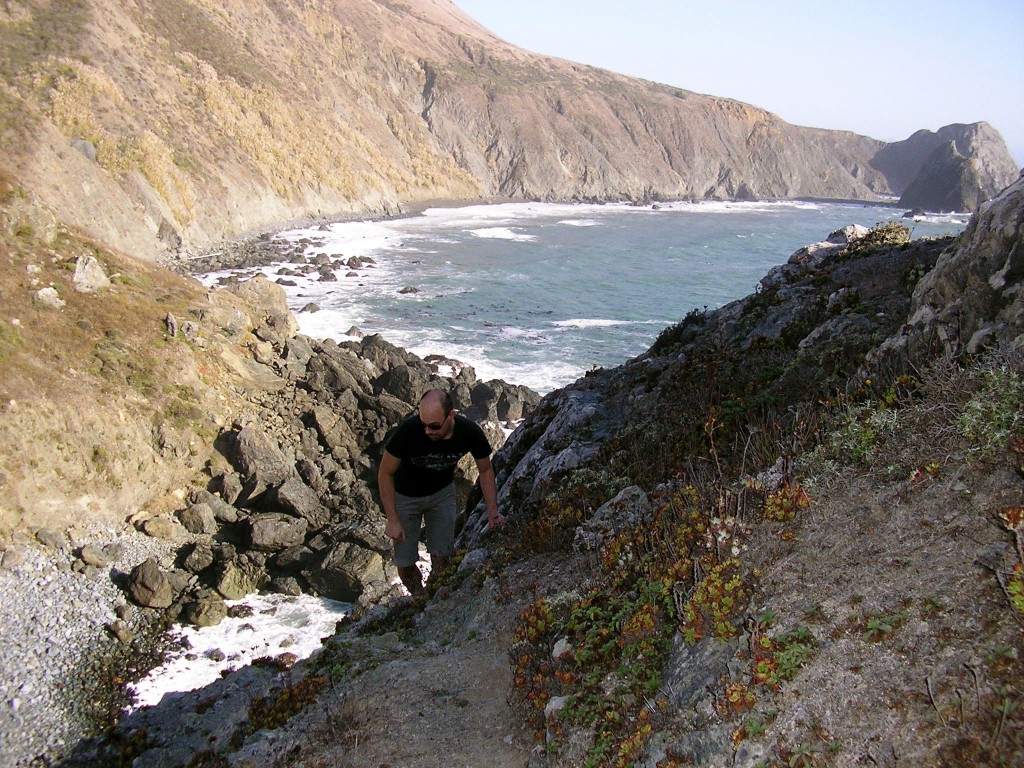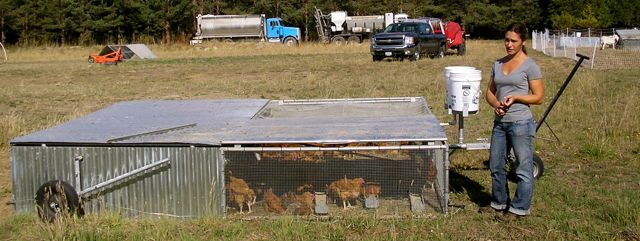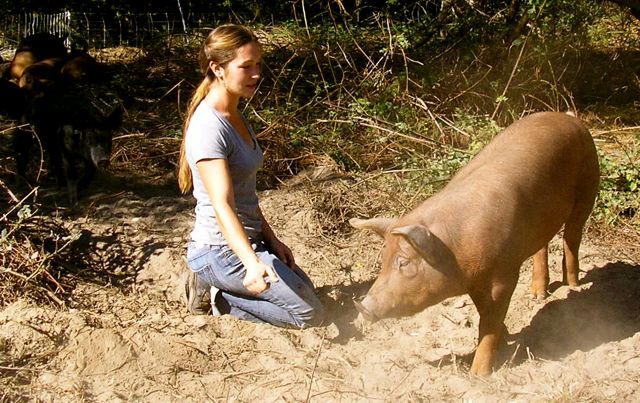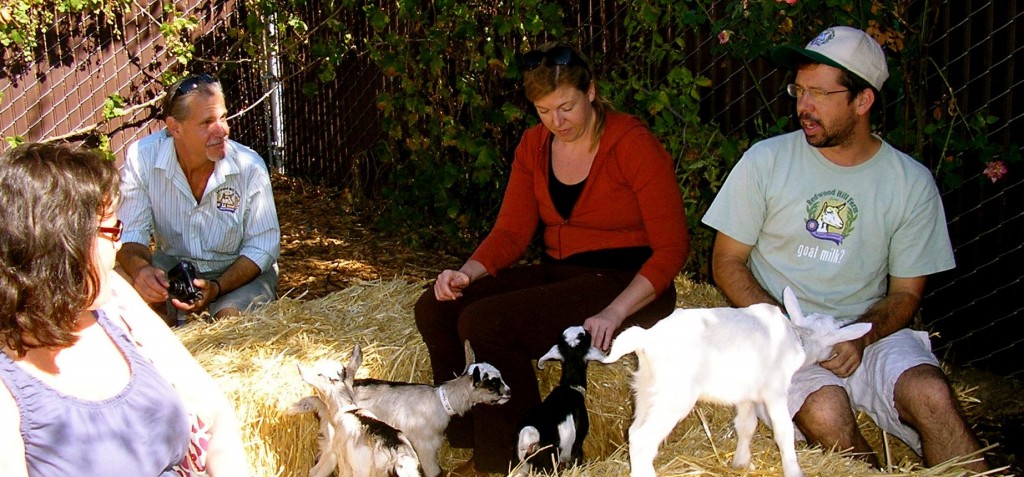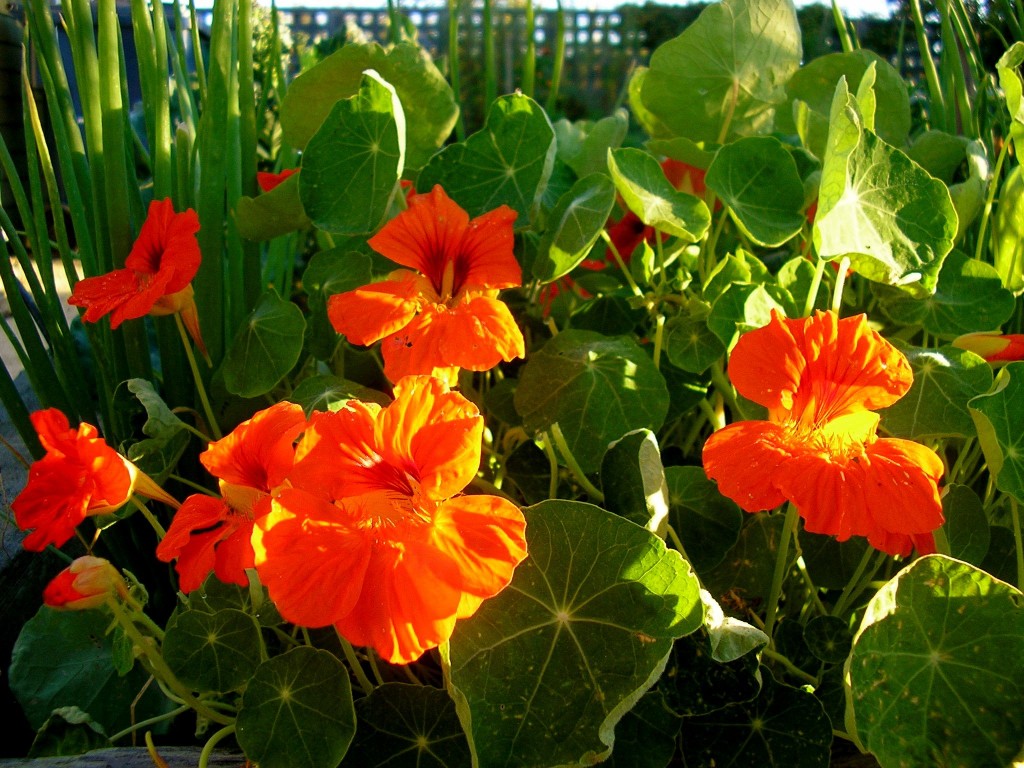Andrew and I hiked this waterfall today and then followed the creek up to a large manzanita meadow, and then to a prominent ridge above Occidental. This hike was dominated by serpentine soil, and, as a result, lots of unique native plants. The trail we took is on private property, so it must remain a secret.
Page 5 of 12
On our way back from a forum on the future of the JC’s sustainable agriculture program, I got to visit the cannery with my friend Torrey, who grows apples at Gabriel Farm. We waited in line with other farmers outside their flatbed trucks and talked about the falling apple prices of late. The cannery is the only remaining fruit processor in Western Sonoma County. It has a huge space aged press that spins as it squeezes the juice out of the apples, and also makes sauce and vinegar. Here’s a history of cannery from the company’s website:
Manzana Products Co., Inc. is a historic apple cannery nestled in Sebastopol’s Green Valley. For over 80 years, apple sauce, apple juice, and apple cider vinegar have been produced in this little corner of the world. Our area is a famous growing region for wine grapes , but many other crops as well. In fact, Manzana was started as a small dryer operation known as Oehlmann Evaporator. Local fruit such as apples, prunes, pears, and hops were delivered and dried. It was owned and operated by husband and wife team, Rudolph and Maude Oehlmann. In 1945, Oehlmann Evaporator became incorporated and changed it’s name to Manzana Products.
The zazu farm crew joined Sarah Silva for a chicken harvest today, and together we eviscerated 50 Rouge Red chickens. Sarah gave us all a refresher course on chicken anatomy, and we were lucky to have an automatic scalder and plucker on hand. Check out our Youtube videos of the harvest here. Warning to sensitive viewers: these videos contain graphic footage of chicken harvesting.
On our way to a gardening job in Sea Ranch, Joe and I took a secret trail to this dramatic outcropping of cliffs that hang over the Pacific Ocean. These rocks are dotted with lots of beautiful succulents, mostly dudleyas and sedums. These plants survive harsh conditions with hardly any nourishment. The north coast is home to many native wildflowers that are just now waking up. Since California native plants grow during the rainy season and go summer dormant, Fall is their Spring. Therefore, this is an excellent time to plant native plants and wildflower seeds.
Growing along the wall in front of zazu is a grape-like vine with striking blue to purple berries. This Porcelain Berry (ampelopsis brevipedunculata), is a relative of the grape, and while the berries are gorgeous, they aren’t good to eat. 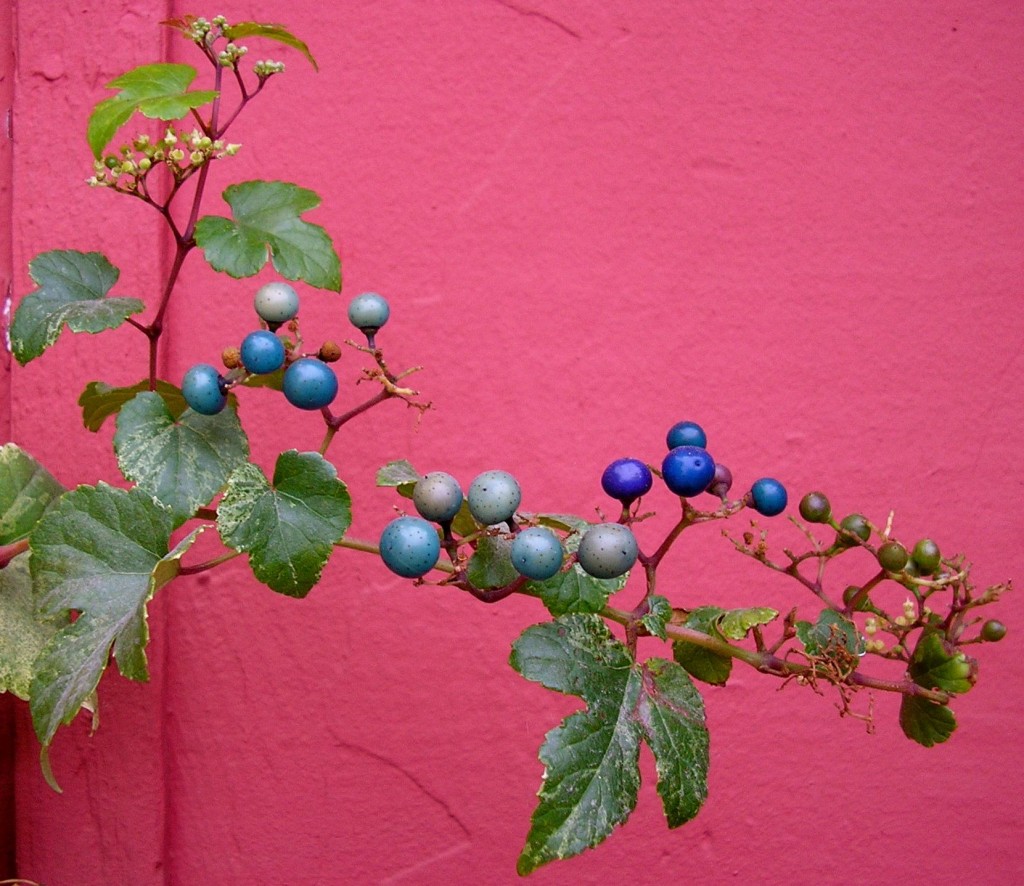
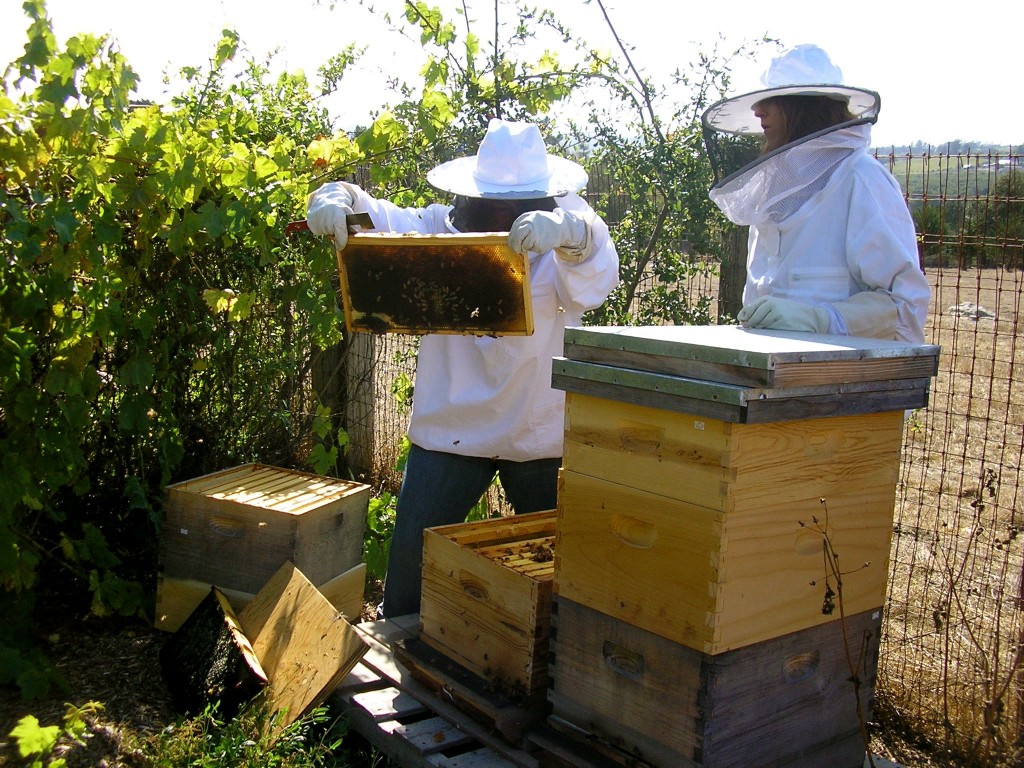
Sierra and Sarah trying to ascertain why the bees in this hive have not built comb in the new box. Sierra Castillo, vice president of the Sonoma County Bee Keepers Association came out to Rancho Pillow today to help us with the bees. My sister Sarah accompanied her during the hive inspection. These hives have had some problems and so Sierra is going to combine them in an attempt to stimulate more reproduction. Sierra is going to help us switch to plastic-free hives, which the bees prefer.
My sister Elena and our videographer Colin joined me for a video shoot at Silva Star Farms today. Sarah Silva is an amazingly innovative farmer, and is truly passionate about her work. We are currently editing the footage. The first video, about the Tamworth hogs, is here. The second video is about Sarah’s farming business model, here. The third is about Sarah’s chicken tractors here. We will be posting more Youtube videos soon.
Redwood Hill brought their cheeses and baby goats to the farm stand today, and we also welcomed Silva Star Farms and veggies from Felton Acres. The zazu farm stand will be open this Sunday October 24rth with Silva Star Farms, Ty’s veggies, Elena’s prints and Joe’s Victory Garden posters. Note: If you leave a contact message, please leave your email, otherwise I can’t contact you.
Nasturtiums are not only beautiful and delicious, but they are also easy to grow. They thrive in most soils with little water. The flowers are striking in a salad, and they add a spicy kick.
